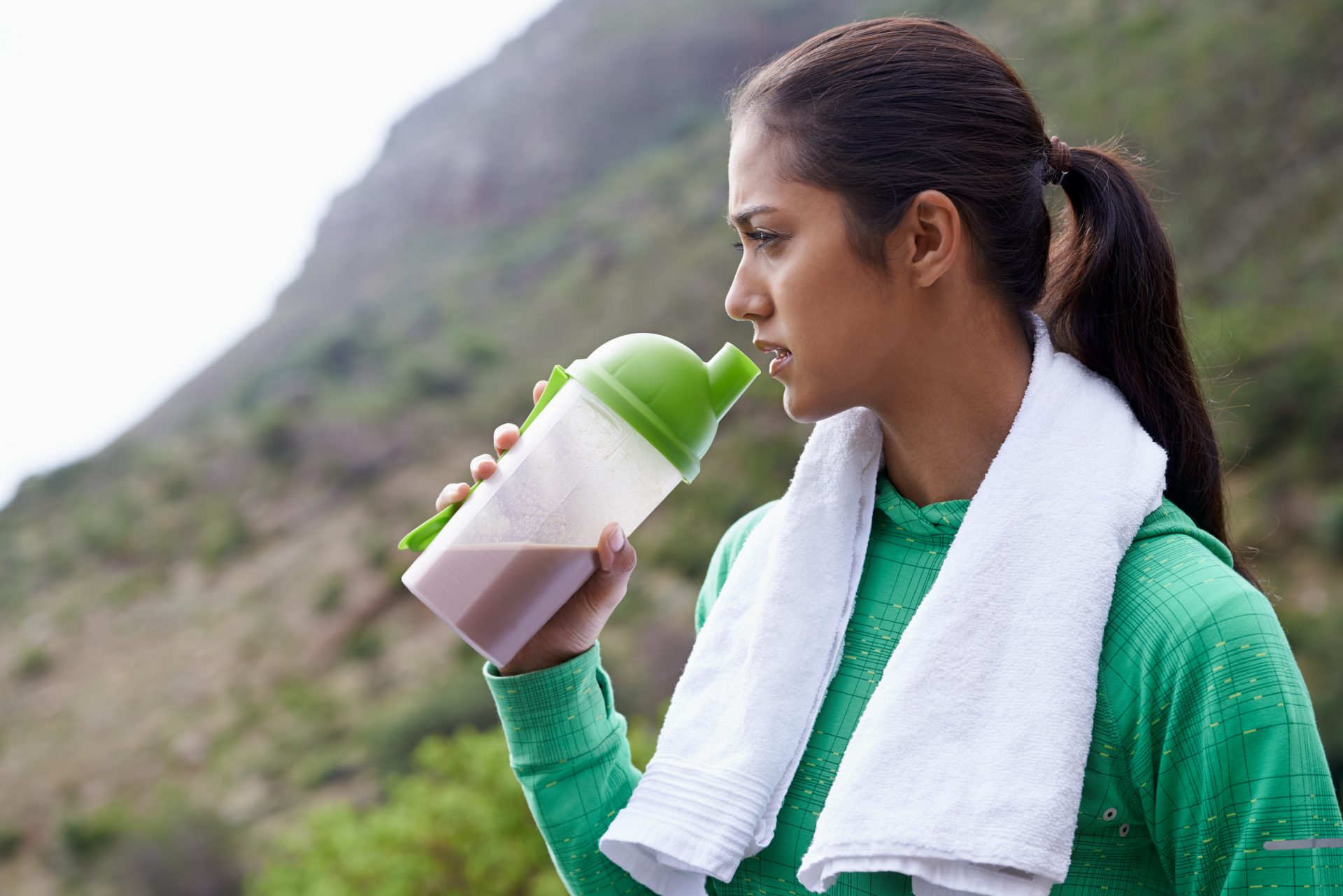Is this popular supplement really worth spending money on?
BCAAs are a popular supplement with gym goers – but are they actually worth taking?
As strength training and high-intensity exercise gains popularity, so do supplements that promise to help with recovery and build muscle. From protein powders and vitamins to sleeping products and stretching techniques, you’ve probably heard a myriad of ways to maximise the results of your training.
That also means you’ve probably come across BCAAs. Often in the form of powders to mix with water or in tablets, BCAAs are a popular addition to the routine of many strength trainers, runners and other workout aficionados. But are they just a fad?
You may also like
Unqualified fitness influencers: how to spot and avoid bad advice on social media
What are BCAAs?
BCAAs stand for branched-chain amino acids, of which there are three types: leucine, valine and isoleucine. They’re part of the wider group of 20 amino acids, which are the ‘building blocks’ of protein.
“Some of these amino acids are made in our body, and the ones that we can’t make ourselves we have to get from our food,” explains nutritionist and strength coach Pennie Varvarides. Leucine, valine and isoleucine are part of the nine amino acids that can’t be produced by our bodies, so it’s essential that we get them from our diet. While amino acids all have unique responsibilities in the body, generally they work together to help with muscle protein synthesis – a fancy way of saying rebuilding muscles after they’ve been broken down in training.

Often, BCAAs are taken during a session rather than before or after, as is common with other supplements. “When we exercise the body breaks down amino acids. The idea is that by taking BCAAs during the session, it can prevent the breakdown and therefore stop your body from feeling so fatigued when exercising,” explains Pennie.
Do BCAAs really work?
As BCAAs are essential for helping your muscles rebuild, repair and grow stronger, the belief is that supplementing with them can encourage strength gains or build more muscle. Unfortunately, that’s not true. Once your body has enough amino acids to do the job, taking more isn’t necessarily helpful, says Pennie. “If you’re vegan, and therefore don’t get every amino acid in your plant sources of protein, or just someone who struggles to eat a serving of protein with every meal, taking BCAAs could help you have a complete protein source. Otherwise, you don’t need them,” she says.
You may also like
The best vegan protein powders, as tested by the Strong Women team
The reason for drinking intra-workout may not be science backed either. As Pennie points out, “If you’re training for around an hour, your body probably isn’t going to run out of anything,” so there’s no need to worry about topping up reserves during a standard workout.
Generally, there’s not actually that much research into whether BCAAs are necessary for humans to build more muscle or strength. In fact, a 2017 review into the science behind BCAAs published in the International Society of Sports Nutrition found that they actually “decreased muscle protein synthesis as well as protein breakdown, meaning a decrease in muscle protein turnover”.
Are BCAAs a waste of money?
There’s no real benefit to taking BCAAs if you’re already getting enough of them by eating a balanced diet. Even if you don’t regularly eat enough or varied sources of protein, “if you’re going to buy anything, you’re better off buying a complete protein powder,” says Pennie.
“I think mostly people have BCAAs during training just to feel like they’re doing something to actively improve their training,” Pennie says. If that works for you and makes you feel good about your workouts, then drink away. But there’s no promising they’ll make you any fitter, stronger or faster, so you’re probably better off spending your cash elsewhere.
Follow @StrongWomenUK on Instagram for the latest workouts, delicious recipes and motivation from your favourite fitness experts.
Images: Getty
Source: Read Full Article
